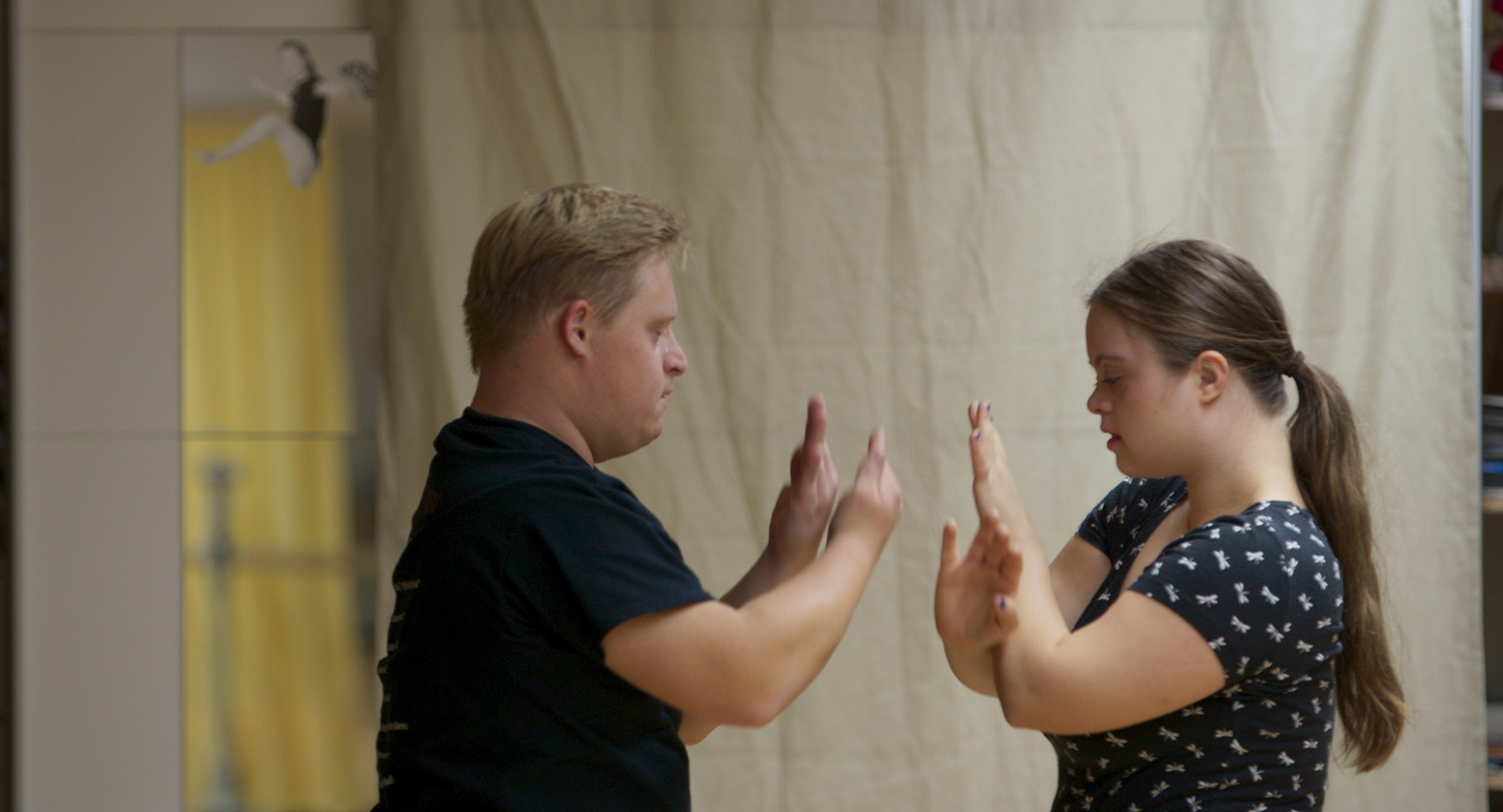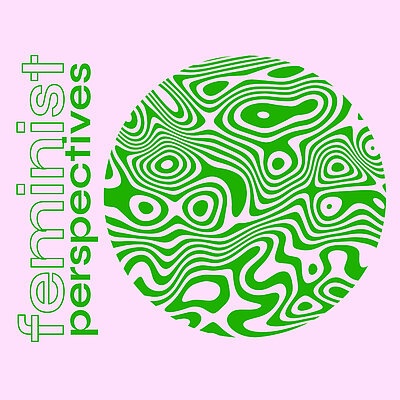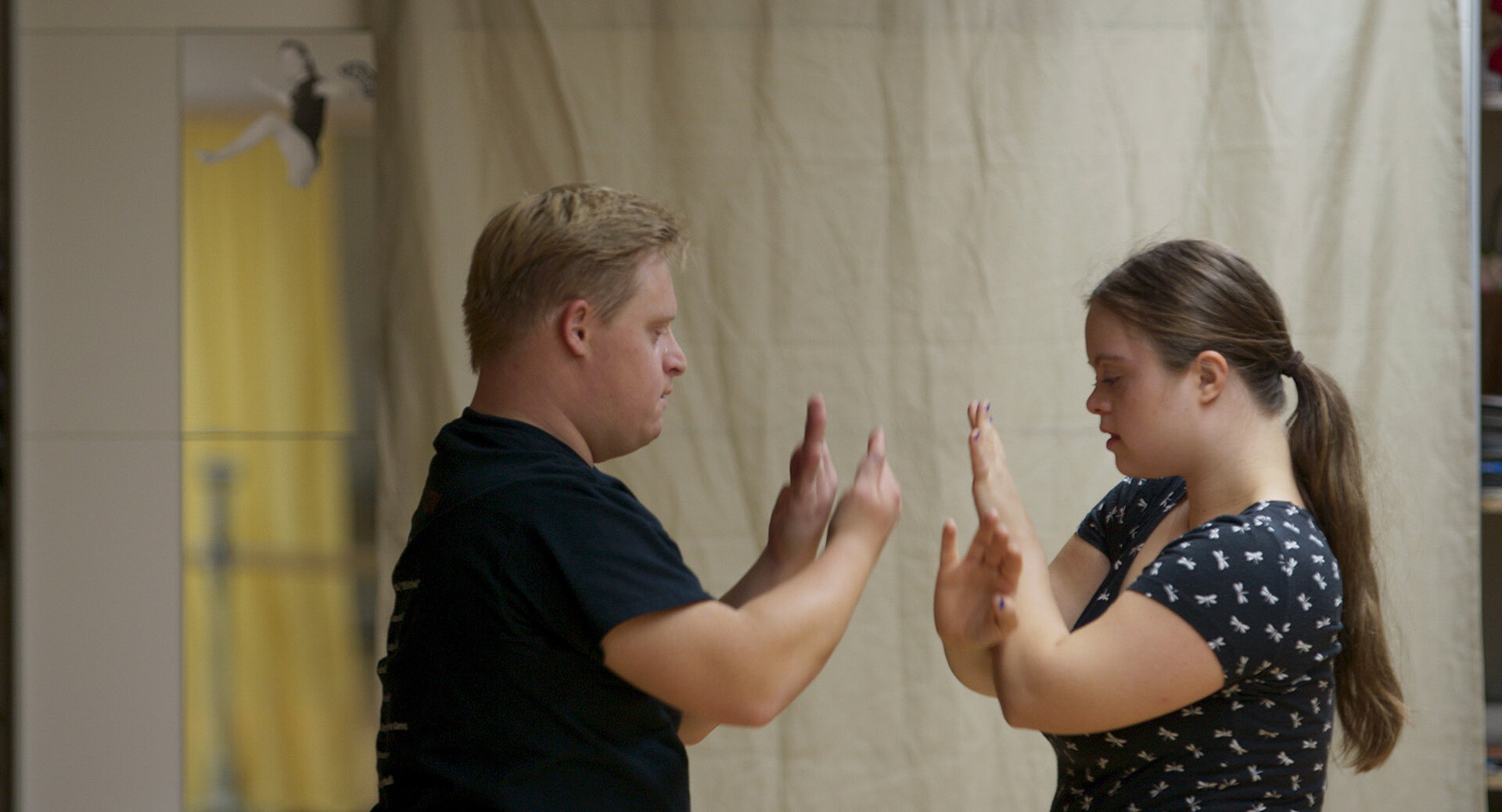
Saturday, December 6, 2025, 6.30 to 9.30 pm
Feminist Perspectives
PROGRAM 4 | BEZIEHUNGSWEISE(N) I – Relating Otherwise
Feminist Perspectives | Program 4 | BEZIEHUNGSWEISE(N) I – Relating Otherwise
How do intimate relationships develop beyond normative ideas? What forms of love, desire, partnership, and self-realization become possible when disabled people define their relationships themselves? The fourth program places intimacy, sexuality, and self-determination at the center—not as problem areas but as sites of freedom and creative redesign.
The title "Beziehungsweise(n)" deliberately plays with double meanings: it's about relationships and about the ways in which people relate to each other. It's about "beziehungsweise" (respectively) as a connecting conjunction and about the diverse ways of relating. The two films show people who refuse to shape their lives according to others' expectations—people who confidently go their own ways, develop their own relationship forms, and thereby shift the boundaries of what society considers "normal" or “possible.”
Sex Assistant by Andrés González Majul and Daniela Berlet is a radical act of self-revelation. The couple from Caracas, Venezuela, both wheelchair users, documents their five-year search for ways to live their sexual relationship. The film is simultaneously a love story, erotic autobiography, and political manifesto. It shows how they try different forms of assistance—from a sex worker to a physiotherapist to artist Desirée Chique—to finally find a form that meets their needs. It's never about "help" in a paternalistic sense, but about self-determined shaping of intimacy under conditions not provided for by society.
González Majul and Berlet explicitly reject both pity and voyeurism. They show nudity, vulnerability, scars—to make visible what should otherwise remain invisible: that physical desire is diverse; and that finding one's own ways and forms of intimacy is a form of experiencing belonging.
"I didn't want to tell the story from a romantic perspective," explains González Majul. Instead, he sought an aesthetic, photographic sensibility that does justice to the complexity of their relationship. In the end, the film shows that the most difficult obstacles are not physical but social—taboos, conservative family structures, the notion that disabled bodies are asexual or can only live their sexuality with "help."
Evelyne Faye's Lass mich fliegen expands the view from the intimate couple relationship to diverse forms of relating: to partners, to work, to political engagement, to future dreams. The film follows four people with Down syndrome through their everyday lives: Johanna and Raphael, who want to marry and have children; Andrea, seeking permanent employment as a caregiver; Magdalena, who writes poetry and is politically active. They are all united by the desire to be perceived as people with unique personalities—not as representatives of a diagnosis, but as a "universe with infinitely many possibilities," as Faye wishes for her daughter Emma-Lou at the film's end.
Faye develops an aesthetic of appreciation that shows her protagonists in their energy, their will for self-realization. The film makes visible the structural barriers people with Down syndrome encounter: the denial of the right to work, marriage, children, political participation. But instead of foregrounding these barriers, Faye shows the spaces of action her protagonists fight for—dancing in the group "ich bin o.k." (I'm okay), giving talks about inclusion, in political activism against discrimination.
Both films follow a common principle: they refuse to show disabled people as objects of pity or care. Instead, they focus on agency, self-determination, the right to a fulfilled life—on sexuality, love, partnership, family, work, political participation. They make clear: inclusion does not mean integrating people into existing structures, but recognizing that there are diverse ways to shape relationships, live intimacy, plan futures.
What becomes visible is a politics of relationships: the demand that disabled people decide for themselves how they want to live—with whom, in what way, under what conditions. It's not about showing that disabled people "also" can love, work, dream—as if that were an exception or surprise. It's about acknowledging that these self-evident things are systematically denied, and making visible the struggle for their recognition.
Sex Assistant does this through radical intimacy: by letting the camera into their bedroom, their relationship, their vulnerability. Lass mich fliegen does this through long-term observation: by showing how her protagonists demand their right to a self-determined life day by day, in small and large gestures.
"Beziehungsweise(n)" means: there is no single right way to love, to live, to be in a relationship. There are diverse ways, and each deserves recognition, respect, support. The program thus connects to the previous festival themes—gazes and counter-gazes, inclusive film practice, creative systems of access—and adds another dimension: intimacy as political terrain, love as a site of resistance, relationships as a space of self-determination.
Information
PROGRAM 4
Saturday, December 6, 2025
6.30 to 9 pm
BEZIEHUNGSWEISE(N) I – Relating Otherwise
Sex Assistant (Andrés González Majul, VE 2019, 21 min) OV (GER)
Followed by a conversation with
Andrés González Majul (by Zoom, English, ÖGS)
Lass mich fliegen (Evelyne Faye, AT 2022, 80 min) OV (GER, SDH, integrated AD)
Followed by a conversation with
Evelyne Faye and actors/performers
Moderation: Anna Holl
(in German, ÖGS)
Admission and screening is free; all you need to do is register online for a ticket. Please register for the slots only, that you can attend in person. Please exchange the ticket at the box office for a wristband, which also grants you free admission to all exhibitions at mumok on that day.
The organizers want to make it easy for everyone to join in by offering free admission, but appreciate a voluntary donation to help cover the costs. You will find the donation box at mumok cinema.
FILM SYNOPSES PROGRAM 4
Andrés González Majul and Daniela Berlet both live in Caracas, Venezuela, and have known each other since 1995 when they trained at the same physiotherapy center. Both use wheelchairs. In 2012 they begin a relationship, share their artistic interests and passion for audiovisual media. But in their need to express sexual desire for each other, they encounter challenges. Their solution is radical: they make a film about their search for support for their sexual relationship—beyond the barriers of their wheelchairs.
Sex Assistant is a documentary love film, an erotic autobiography, and a political statement. The film, which they worked on for five years, documents their path through different forms of assistance: the sex worker is followed by a physiotherapist who mechanizes and temporally coordinates the act. Finally, with the help of Venezuelan artist Desirée Chique, they find a form of sexual assistance that meets their needs—and thereby connect intimacy with artistic production.
They didn't want to tell Andrés and Daniela's story from a romantic perspective—instead they sought a different aesthetic, artistic, and photographic sensibility. Nudity, vulnerability, intimacy are thus made visible as part of a self-determined representation. The film rejects both pity and voyeurism and instead insists on the right of disabled people to sexuality, desire, and pleasure.
Sex Assistant is no lesson or instruction manual, but rather an act of self-liberation ending in transformation. The film reveals that the most massive obstacles are not physical, but rather social taboos, conservative family structures, the lack of visibility of disabled sexuality, the notion that disabled bodies are asexual or can only live their sexuality with "help." Sex Assistant makes clear: sexual assistance is not pathologization but can be a form of self-determination—when it's based on the needs of those affected, not on normative notions of "normality."
Lass mich fliegen follows four young people through everyday life. Four people full of life with clear goals—finding work, becoming politically active, getting married, having children—for whom achieving these goals is connected with many obstacles and who are put in a box by society: people with Down syndrome.
The couple Raphael and Johanna are part of the dance group "ich bin o.k." (I'm okay), Raphael works as a waiter. Someday they want to marry and have children. But there are some external hurdles in the way of family planning.
Andrea is an opera fan and has long been seeking permanent employment as a caregiver; beyond internships it hasn't worked out yet. She presents her experiences with much humor in talks throughout Germany. And Magdalena writes poetry and is politically active. She likes being in the spotlight: "My parents say I'm a diva, a show-off."
Director Evelyne Faye accompanies them all with the camera through everyday life—cooking, shopping, and cleaning the apartment; styling hair, at work, going on outings and dancing. Instead of recognition, they often harvest pitying looks and dismay. But their claim is to be included, to be seen as people with rights—and especially also with possibilities to realize themselves.
"I wish for you, as for every person, to be viewed as a universe with infinitely many possibilities," says Evelyne Faye at the film's end to her daughter Emma-Lou, who has also been diagnosed with Down syndrome. How that can work with a lot of self-confidence and commitment is shown by the people in this film.

© mumok – museum moderner kunst stiftung ludwig wien
